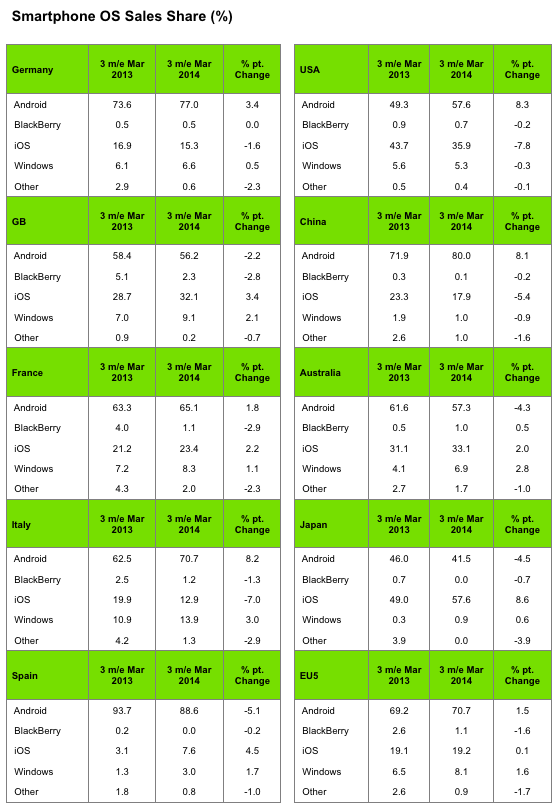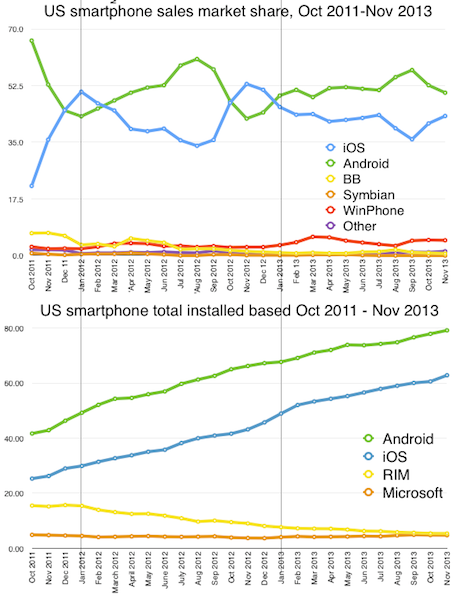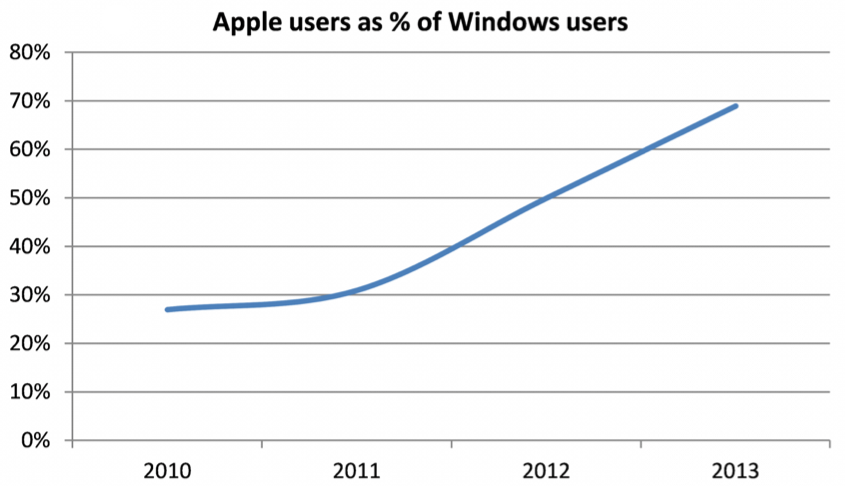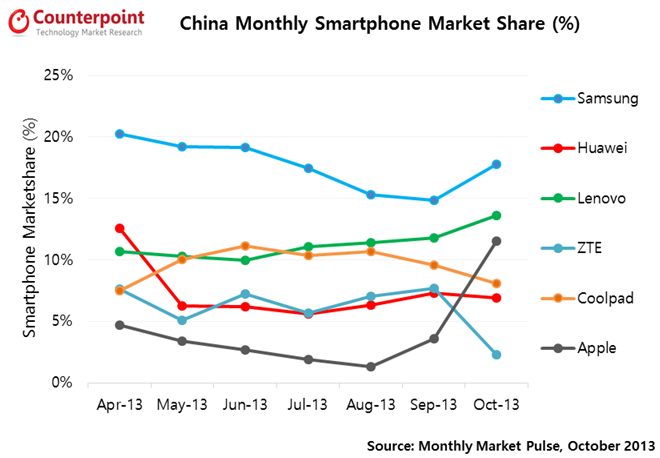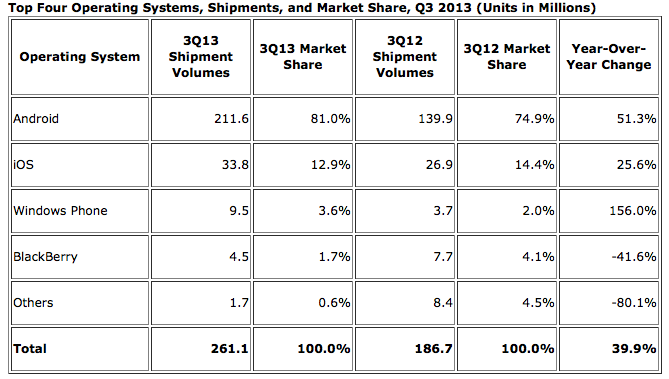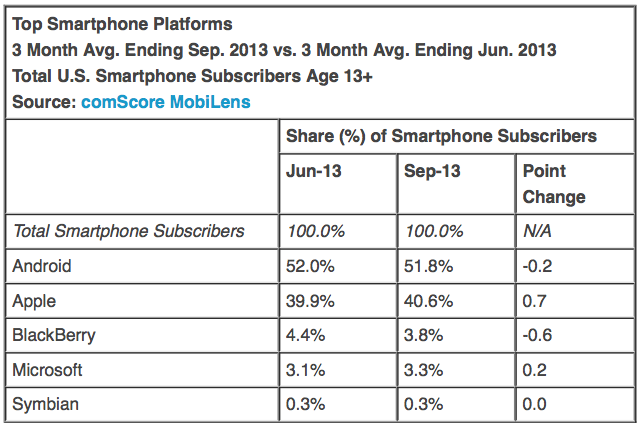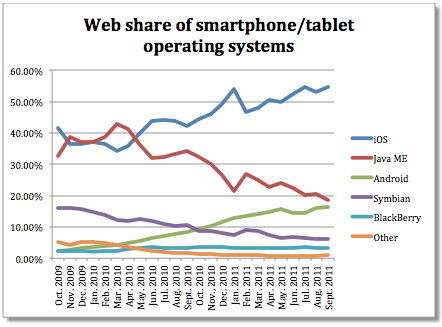Report: Apple takes 92% of smartphone market profits on just 20% of sales

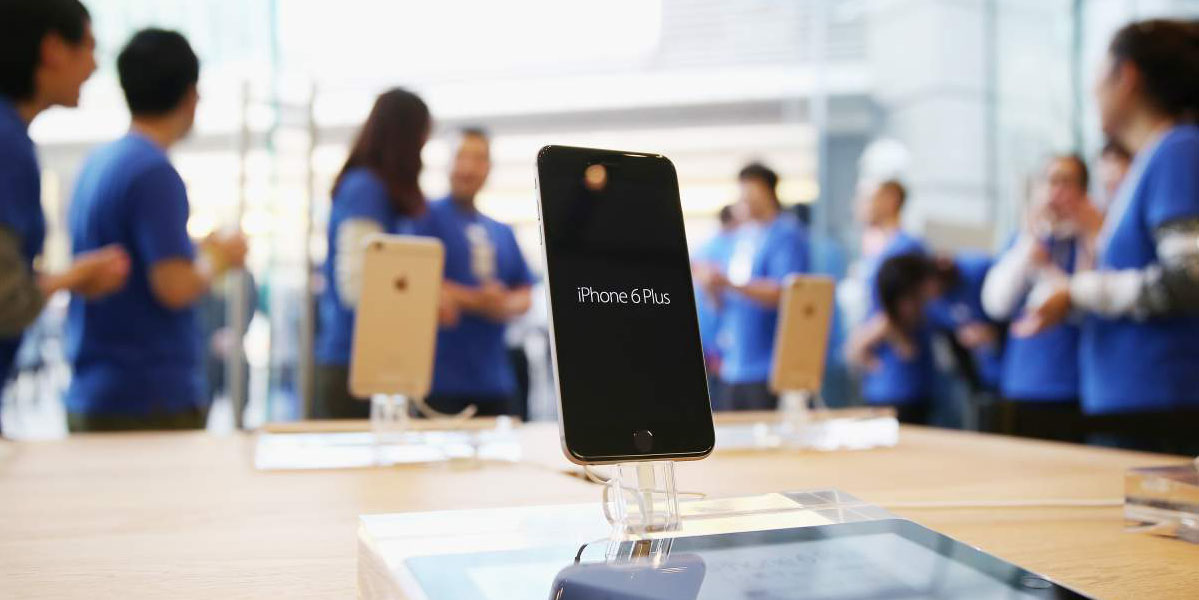
Android may have the market share, but it’s an entirely different story when it comes to profit share: the latest estimates from Canaccord Genuity indicate that Apple takes 92% of the profits for the entire smartphone industry despite accounting for only 20% of sales.
Or, as the WSJ puts it:
Roughly 1,000 companies make smartphones. Just one reaps nearly all the profits.
Samsung took a further 15% of the profits – and if you were wondering how that rather odd math works, it’s because most of the other players make a loss, so the two companies make more profit between them than the smartphone industry as whole …
Expand
Expanding
Close


